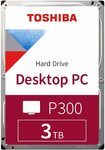Since it seems like Camelcamelcamel Australia doesn't have any data to determine whether this is a bargain or not,
I went to Camelcamelcamel USA to find some sort of guidance with pricing for this product, and it seems like this product has been down to $81 USD on Sep 21 2019, from a third party seller.
According to quick googling, this was the exchange rate on 21/09/2019:
1 USD to AUD = 1.4773 on 21/09/2019
So:
81USD x 1.4773 = $119.6613AUD
+10% Aussie tax = $131.62743AUD
Or more recently, it was $86.21USD on 04/03/2020, which is $143.2042931AUD with the exchange rate on the respective date and 10% OzTax applied.
And $91.67USD on 01/10/2020, which is $140.3247692AUD.
So I figured this price is worth mentioning. Especially because these were completely in stock yesterday, and the day before, but now it's down to "Only 5 left in stock (more on the way)." apparently. So it looks like a few people are buying. Since there is more on the way, I figured this isn't a "limited stock forum post" either.
Anyways here are the specs:
Hard Drive Rotational Speed 7200 RPM
Cache size 64 MB
3 TB Storage
Some Hard drive failure rate statistics during 2020 from Backblaze: https://www.backblaze.com/blog/backblaze-hard-drive-stats-fo…
The Toshiba P300 isn't listed in Backblaze's stats, so take the above information with a grain of salt.
*Do note that this P300 is different to the old version, with the bright red sticker like this one:
https://images-na.ssl-images-amazon.com/images/I/41IQmtK7sTL…
I did have a look at the Toshiba X300 series with the 128 MB cache, but I see way too many comments from many different users claiming that their X300's are the "loudest hard disk drive they have ever bought", which isn't something I was looking for. But if you are someone who doesn't mind noise, they may be a good option.




 CamelCamelCamel
CamelCamelCamel
Is that some sort of high performance drive? If you're just after basic storage then you can't beat shucking a 4tb Seagate Desktop Expansion drive for $109 from bing Lee / jb hifi / officeworks etc.